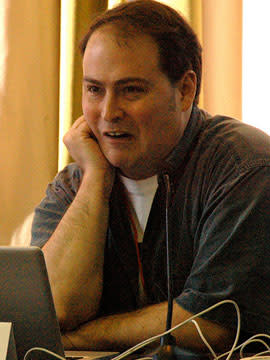 The Cutline
The CutlineDoes NPR’s Andy Carvin tweet too much? He says he’s recording ‘oral history in real time’

The American cable news networks may have fumbled their coverage Sunday of the developments in Libya, but NPR's Andy Carvin was on it. Carvin has made a name for himself as the go-to curator on Twitter of online reports from the revolutions in the Middle East, which he collects, crowdsources and vets.
As the Libyan opposition moved into the capital of Tripoli, Carvin produced more than 1,200 tweets, 879 of them on Sunday alone, Jeff Sonderman of the Poynter Institute reports. Carvin, who is a senior digital strategist at NPR, was whitelisted by Twitter earlier this year, allowing him to send a volume of tweets that would get an average user blocked from the service.
But not all media observers were impressed. Justin D. Martin of the Columbia Journalism Review took to Twitter himself Monday to criticize Carvin, "@acarvin tweeted 1,200 times over wknd. 1 of most talked about Tweeps & only has 54k followers. His tweet bombing of followers is why."
Carvin's followers sprang to his defense "Did a guy w/ 702 followers just dis @acarvin for "only" having 54K?" asked one. Dani Fankhauser collected the resulting conversation on Storify.
Carvin told The Cutline on Monday afternoon that he rarely gets complaints from his followers. "Usually, I get complaints when someone does a news story about my prolific tweeting, and they don't understand the context of what I do on Twitter," he said.
"All I know is that my number of followers has tripled since the Arab Spring started, so clearly some people are interested in it."
"As far as I'm concerned, the greatest aspect of Twitter is the collection of people who use it," Carvin says. And indeed, as Anil Dash has persuasively argued, at some point the number followers that an account has becomes meaningless. A better metric of Twitter influence may be the interaction between users--and on that count, Carvin is undeniably one of the more engaged users.
"Part of what I'm trying to do is capture the perspectives of people caught up in the middle of the action in real time," he said. "For all of the countries that have experienced revolutions, there are people tweeting eyewitness reports, capturing the emotion and atmosphere of the situation. I retweet a lot of those exchanges, because it's like observing an oral history in real time."
